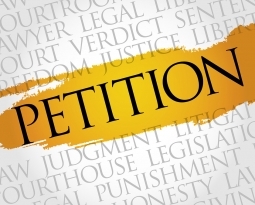Tax considerations of a New York divorce
The law states that when spouses transfer property to each other during a divorce, the process is practically tax-free. This is one of the few instances where taxes don’t come into play, however. There are a number of delayed tax consequences associated with divorce. Some of them are relatively obvious and therefore predictable, while others come as a nasty surprise after the settlement.
Property settlements
Although transferring assets between spouses will not generally create a tax consequence, selling them may have tax repercussions that ultimately reduce their value. This is often seen with real estate, business holdings and investments. Certain assets can even incur taxes when kept, such as traditional IRAs that hold investments in alternative assets such as hedge funds and limited partnerships.
Spousal maintenance payments
Unless divorced spouses agree to change their taxability, spousal maintenance is deductible for the payor and taxable to the recipient. To avoid being saddled with a large tax obligation, maintenance recipients should remit estimated tax payments and put aside money for the ultimate amount owed when they calculate their yearly income tax.
Dependency exemptions
IRS rules state that the parent who is the primary caretaker may claim the children as dependents on their tax return, unless they have allocated the children (for tax purposes) to the other parent. The allocation of the dependency exemption should be settled in the final divorce decree to prevent future misunderstandings and tax issues later on.
Accessing retirement funds
Early withdrawal from retirement accounts are subject to taxation and a 10% tax penalty. This can pose problems when these accounts are divided in a divorce, unless the process is carried out pursuant to a Qualified Domestic Relations Order (QDRO). The spouse receiving the funds can elect to take some or all in the form of cash, which will result in taxation but a waiving of the penalty. It is important to remember, however, that not all retirement plans can be divided by a QDRO.
If you are getting divorced in New York and your spouse is willing to work with you on a settlement agreement, taking these tax considerations into account will minimize any associated pitfalls that the agreement might contain. Should your divorce have to be litigated, judges will usually consider the tax implications to both parties when dividing marital assets.
Your Bronx divorce attorney can advise you on the tax implications of dividing certain marital assets and receiving spousal maintenance. It would also be advisable to schedule a meeting with a financial advisor, accountant, or related professional to ensure that you begin your single life without a heavy tax obligation diminishing the value of your share of the marital estate. The attorneys at Eskin & Eskin, P.C., a family law firm for family law matters, are committed to their clients’ cases as evidenced by the numerous referrals they have received. They have more than 40 years of combined experience and offer free consultations. Call 718-402-5204 or visit www.EskinAndEskinLaw.com to learn more about our firm.





